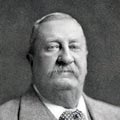The Inca Saga, Part 2
It was just at this time that the eyes of Spain were attracted to the Southern Seas, in consequence of the exploits of Cortes, Balbao, and others. A Settlement had been established at Panama, whence several expeditions put out from time to time, hoping to discover the great Peruvian empire of which rumour spoke so highly—a land where the natives drank out of golden vessels and constructed their baths and household utensils of silver. After three or four abortive attempts Pizarro, a Spanish adventurer of obscure birth, landed near Tumbes in 1532, and made the most of the opportunity the fratricidal struggle between Atahualpa and Huascar presented him with.
He sought the first named at Caxamarca, and gave him to understand that he appeared as the ambassador of Charles V. of Spain, who as the Over-lord would be only too glad to see the quarrel properly adjusted.
Pizarro’s chaplain, Valverde, who subsequently became first bishop of Cuzco, took a prominent part in what followed. He called upon Atahualpa to acknowledge himself as Charles’s liegeman, and to embrace the Roman faith, the tenets of which he outlined.
The Inca heard him with ill-concealed impatience, and then addressed him as follows: “I will be no man’s tributary. I am willing to hold your Emperor as a brother, but the Pope of whom you speak must be crazy to talk of parting up lands that don’t belong to him. As for your faith, you tell me your God was put to death by the very men he created; but mine,” he concluded, pointing to the Sun, “still lives and looks down from Heaven upon his children.”
When Valverde heard these words he told Pizarro what was required was deeds not words. Thereupon the latter gave a signal to his artillery as previously agreed and set about making a prisoner of Atahualpa. The latter’s men fought hard and well for their lord and master, but their bows and arrows were no match for the Spaniards’ fire-arms. So, though they largely outnumbered the invaders, they soon had to own themselves beaten.
Atahualpa was kept prisoner in his own house. Although allowed the company of his wives and occasional intercourse with his nobles, he soon pined for liberty, and in hopes of securing it by playing on the greed of his captors, made the famous offer to which reference has already been made.
Pizarro led him to think that his proposal was acceptable; so Atahualpa gave orders that his subjects were to set about collecting the ransom forthwith.
Within a few weeks many massive pieces of gold plate and silver were brought in to Caxamarca. Some weighed as much as 50 lbs. to 75 lbs. Messengers sent to Pachacamaca to hurry up the Indians resident in that district, returned with 200 loads of gold, besides much silver.
Some idea of the rich store of treasure poured out at Pizarro’s feet may be gained from the fact that before Atahualpa’s men had half completed their task, Pizarro allocated to his own use 57,222 pesos in gold and 2350 marks silver, and in addition the great golden throne of the Inca, valued at 25,000 pesos. His brother, Hernando, got 31,500 pesos gold, and 2300 marks silver. De Soto’s share was 17,700 pesos, and 724 marks; while D’Almagro received 20,000 pesos gold, and his men 15,000 between them.
Pizarro was now for setting his prisoner at liberty, but the majority of the Spaniards were against that, and insisted on his being brought to trial. As is usual in such circumstances, the voice of the majority prevailed. The trial duly took place and Atahualpa was found guilty. The sequel I will narrate later on.
After Atahualpa had paid the death penalty the Indians broke out and plundered the temples and palaces of all their treasures. These they buried in caves in the fastnesses of forest and mountain, so that they should not fall into the hands of the Spaniards.
It is generally believed throughout Peru and Bolivia that some of the Indians know where the great bulk of this treasure lies hid; but the man who may induce them to reveal the secret has not yet appeared upon the scene.
Now and then some one is so lucky as to stumble across a small hoard, but what has been brought to light up to now represents only an infinitesimal portion of the wealth that was put in the safe keeping of Mother Nature.
